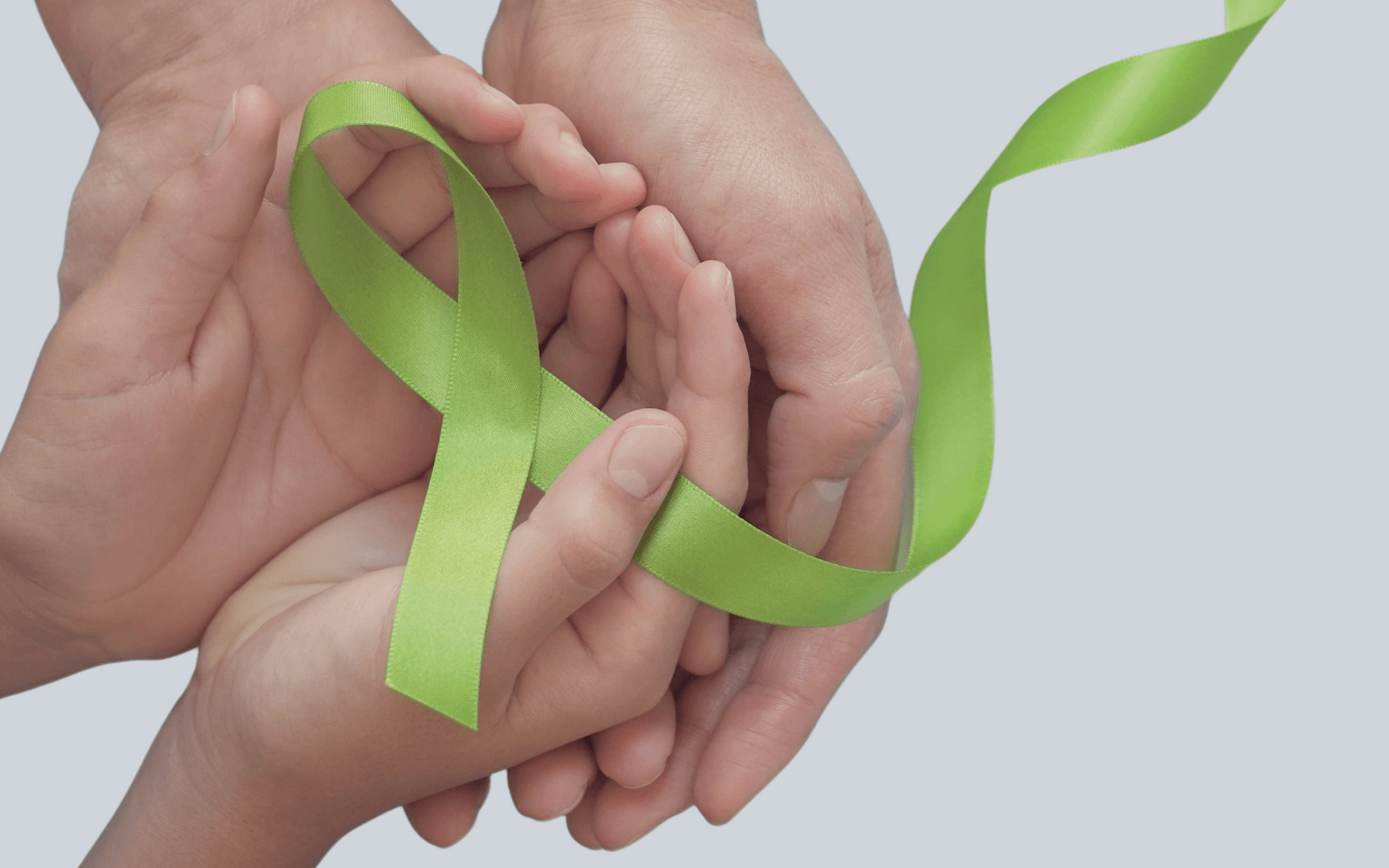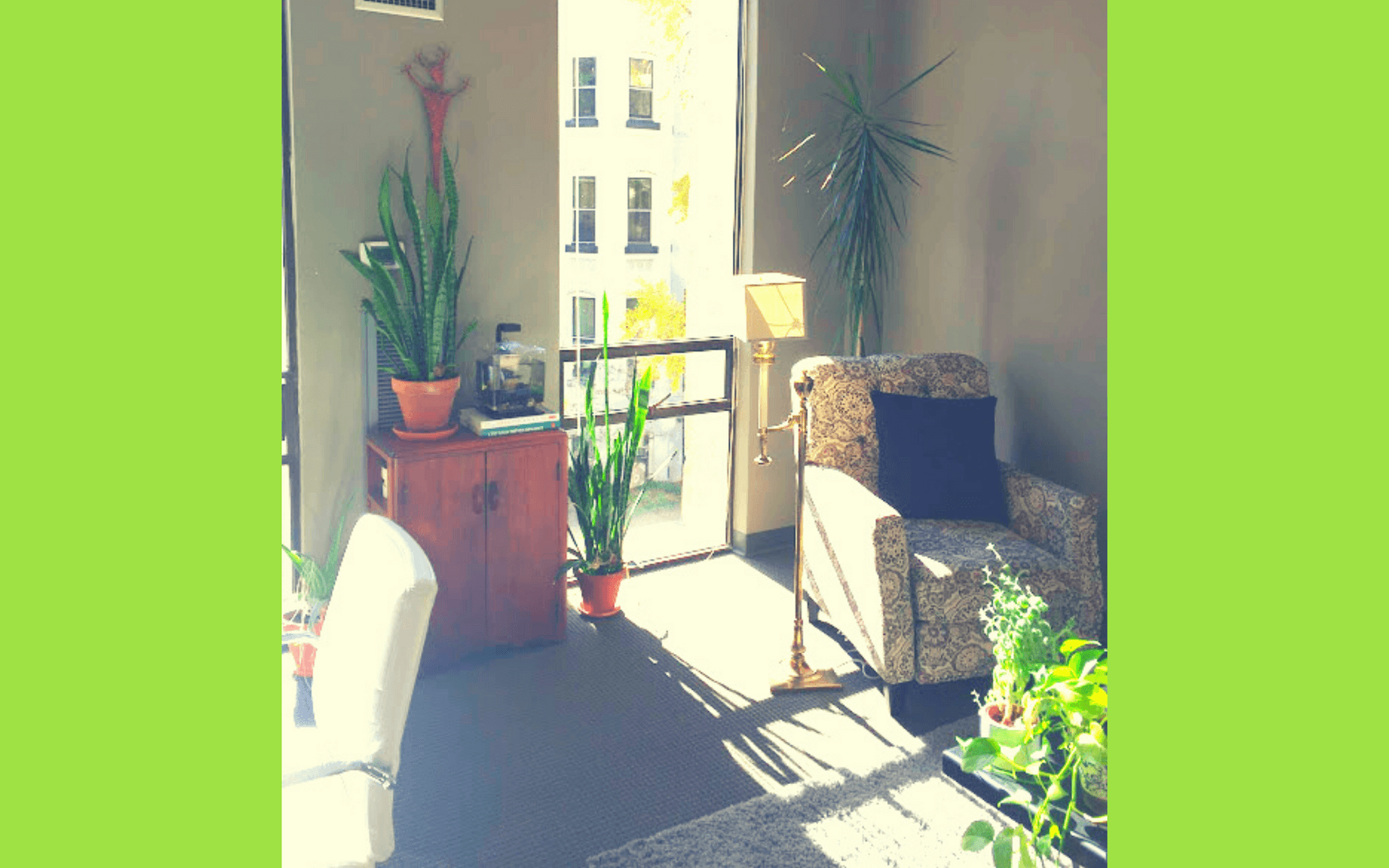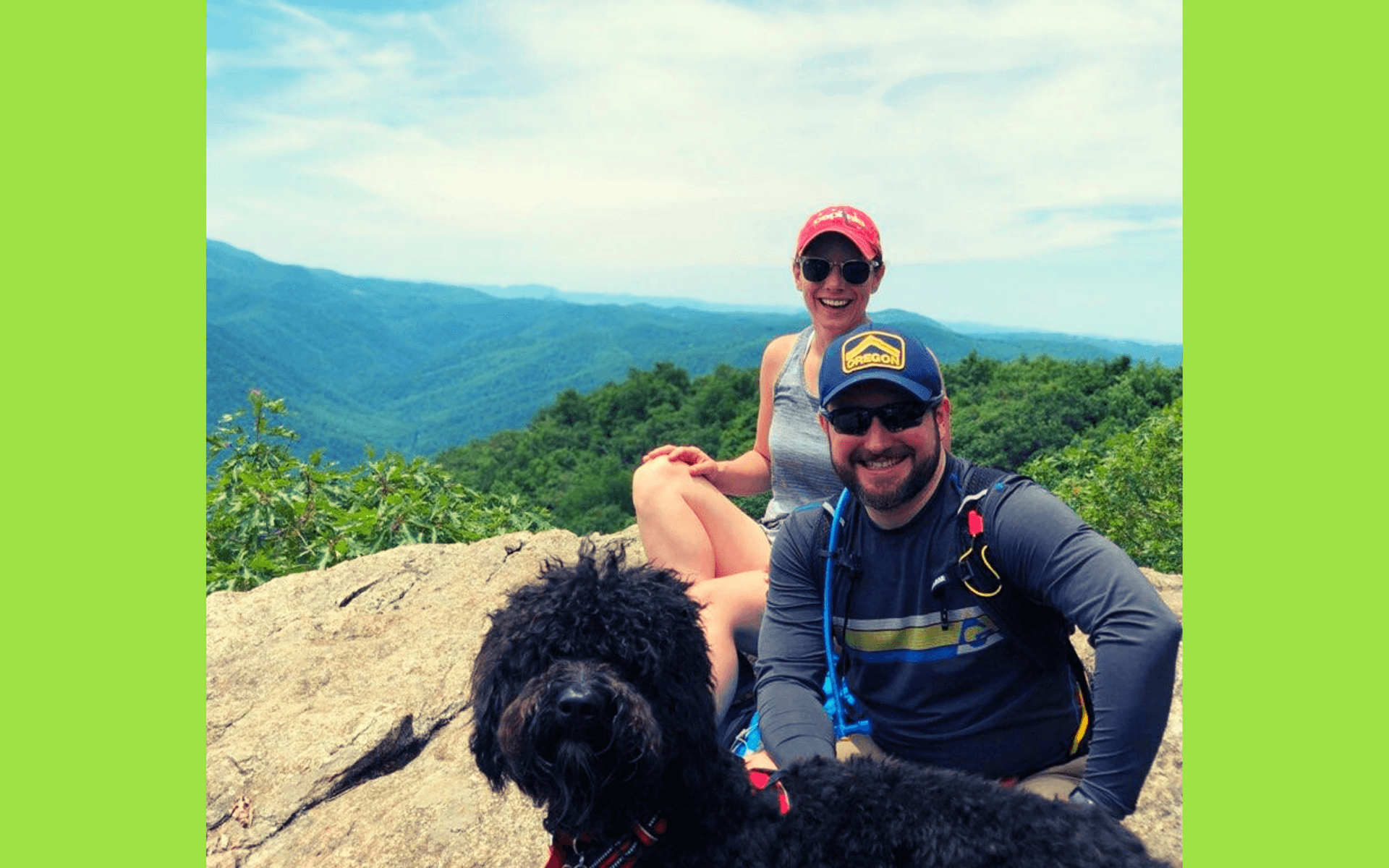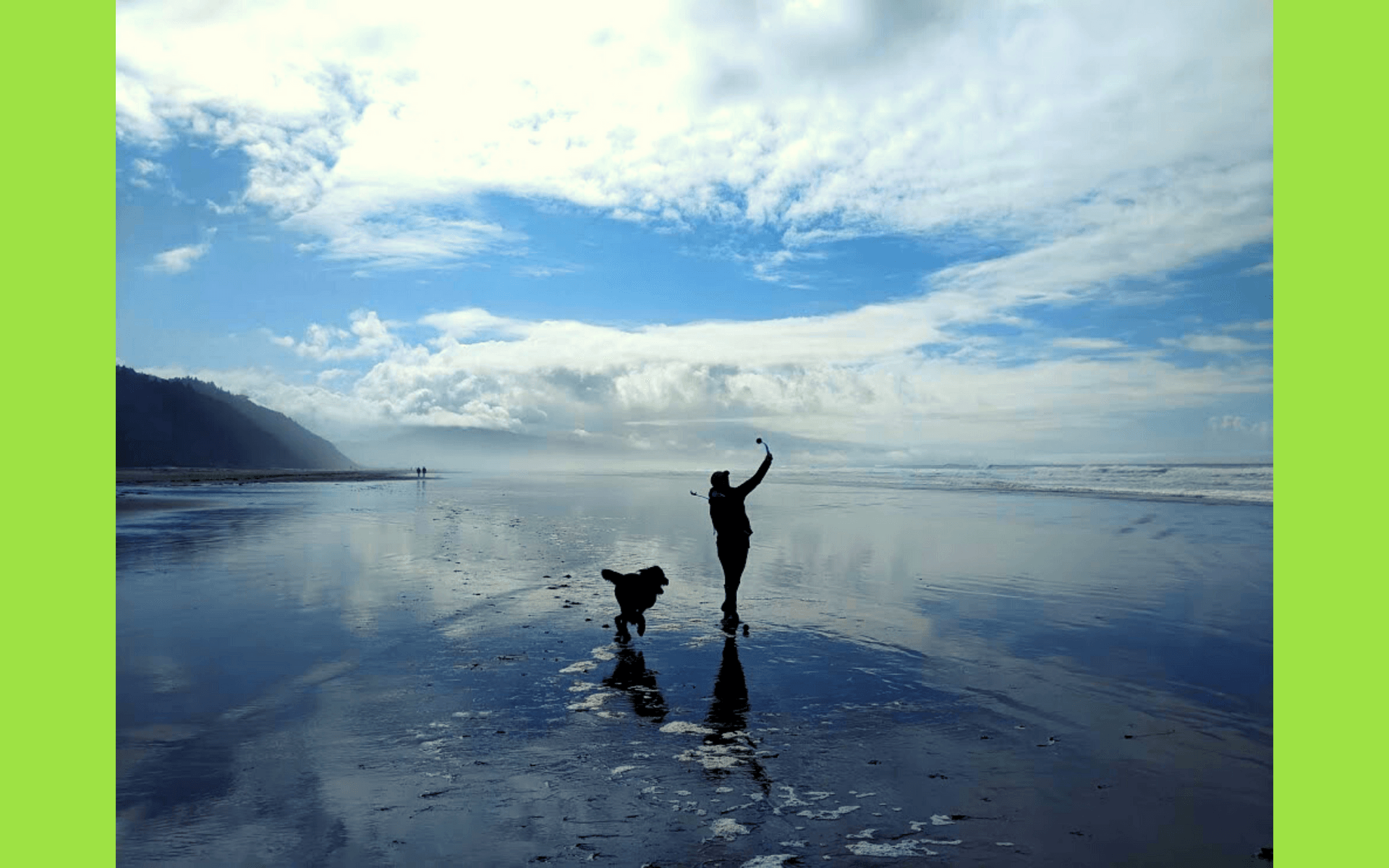Mission
From Reflection to Action: Expanding the Lens on Mental Health Awareness in Northwestern’s Master of Counseling Program
Written by Bannon Puckett on May 24, 2021
Related content: Graduate Programs

“If you have diabetes, you go and get insulin and everyone understands. If you have a heart problem, or heart disease, or kidney issues, you start treatments and people just get it. But the minute we bring any problem into the mind, suddenly very few people can or even want to relate, because there’s so much stigma around it.”
On an unusually warm and sunny spring day from her home in Portland, Oregon, Catherine Sims is reflecting on her role as an adjunct faculty member in the online Northwestern University Master of Counseling program (Counseling@Northwestern) and her experiences as both a clinician with her own private practice and the clinical director of a trauma center. May is Mental Health Awareness Month, so Sims is also discussing the current global state of mental health, as the world has been living through, and dying from, both a pandemic and widespread social unrest and protests for over a year. According to the National Alliance on Mental Illness (NAMI), one in five adults and one in six youth between the ages of 6-17 experience mental health challenges each year.
“Counseling@Northwestern is run by a group of powerhouse women,” Sims says. “Their amazing diversity-mindedness is serving as encouragement for faculty to bring up difficult issues in the classes we teach—a lot of which hinges on student self-reflection.” One particular course she teaches helps inspire future clinicians to actively do just this: Reflective Practitioner Supervision, a core component of the practicum experience, otherwise known as RPS. “It’s one of my favorite parts of the program,” Sims beams.

RPS: Helping Students Reflect in a Safe Space
“Counseling is a fairly unique environment when it comes to individual therapy,” Sims says. “It defies what we think of as standard communication, where you ask a question and I respond, then I ask a question and you respond. In counseling, the focus is only on one person in the room, and that’s the client. However, if you have a clinician who is feeling ‘activated’—perhaps having a difficult time with something in their personal life—what you end up with are two highly activated people in one room trying to figure something out. The process of reflection is designed to break that apart and help students get to the root of what's theirs to own and deal with, so that they can learn how to separate their client work from their personal work.”
When students are at their clinical placement sites, Sims explains, they discuss what’s happening with their clients directly with their on-site supervisor. But when they come to RPS, they talk about and process what’s going on with their inner selves during the counseling process.
“During placements, there’s a clear distinction in terms of the space we offer for this purpose,” Sims says. “Each class maxes out at six students so it’s small and intimate and safe. We're together for three full quarters so a rapport gets built up. I ask a lot of questions and do a lot of probing, saying things like, ‘It seems you're feeling some resistance here, can you dig into that more?’ By the end of those 30 weeks, it's the students asking each other, and themselves, those questions. So there’s this scaffolded transition where I provide a lot of support and encouragement in the beginning but then slowly back up as the students step forward.”
The lack of talking about these issues is creating barriers to treatment for huge groups of people. The more the students are uncomfortable, the more it means it’s time to lean in. I’m trying to model that behavior of speaking up.— Catherine Sims, Adjunct Faculty, The Family Institute at Northwestern University
It’s Time to Get Uncomfortable...
The RPS course also probes into personal biases. “Everyone has them—it's heuristics,” Sims explains. “We assign labels and meaning to any and all things and people, and that's how we all get through life. For clinicians, that can create barriers to effective treatment for their clients. It’s important to figure out which biases clinicians can successfully navigate, or if they need to make the ethically responsible decision to say there are certain client populations they’re just not going to be effective with. At the same time though, we can't discriminate. RPS helps students identify areas of weakness and opportunities for growth, but also areas of strength so they can be successful with a whole host of clients.”
Sometimes this process of reflection makes students nervous to speak up, Sims says, even in small groups.
“So many people, including some students in the Counseling@Northwestern program, are uncomfortable in today’s climate of social unrest,” Sims says. “There’s this culture of perfectionism and fear of judgement if they misspeak or say something wrong. I try and reframe that perspective and say, ‘Well, we’ve got to say something,’ because the lack of talking about these issues is creating barriers to treatment for huge groups of people: clients from all different racial and ethnic groups and sexual orientations, but also police officers and first responders. So the more the students are uncomfortable, the more it means it’s time to lean in. I’m trying to model that behavior of speaking up and just getting the conversation going, because they’re going to need to know how to do that in their practice.”

...But Intentional Self-Care Is Equally Important
In her private practice, Sims shares very little of herself to keep the focus on her clients. But in the courses she teaches with Counseling@Northwestern, she’s happy to share anonymous stories of her experiences counseling clients working through a range of mental health challenges, from mild depression to personality disorders to traumatic crises.
“It helps normalize the experience,” Sims explains. “Practicing therapy can be scary; It’s a lot to sit in front of someone and have them share things with you, trusting that you have a plan and know how to help them. Beyond teaching the practical skills and techniques that students can apply with their clients, we also talk about the bigger context of our work: What’s it like listening to these stories for six-seven-eight hours a day and then going home? What are the step-by-step things we each need to do to get our mind into a different space? And how do we adapt our self-care to forces beyond our control?”
The key, Sims explains, is that boundary-setting needs to be intentional. “What’s unique about the last year and a half,” she says, “is that it’s one of the first times clinicians as a whole are going through things their clients are going through at the same time. With all these intense national and world events, we’re experiencing this collective inability to process and recover before the next thing happens and we just end up with this compounding effect.

Mental Health Awareness Month and Beyond
Sims points to the growth of trauma-informed care as one example of how this last year alone has changed many perspectives on mental health. “I see the pandemic as ushering in more understanding that someone who’s gone through trauma might not look the way you think they do,” she says. “More people are realizing trauma can go back generations and it's cyclical and can impact every aspect of someone’s life. And yet many trauma survivors can still go to work and have friends and be comforting to others.”
For Mental Health Awareness Month, Sims’ wish is for even more people to widen their scope of understanding and take action. “People have these whole histories that we just don’t know about,” Sims says, “and we’re limiting our options to connect with each other by prescribing a life we think they've already had. Allow room and create space for people to share their truths with you. Otherwise, your preconceptions are preventing others from opening up, and that’s problematic if we’re talking about a clinician-client dynamic.”
Luckily, the online aspect of Counseling@Northwestern helps remove some of these barriers to empathy, trust, and having an open mind. “The program right now includes students from Alabama to Seattle, and from Maine to Arizona,” Sims explains, “which means in our conversations we can bridge some of the gaps in cultural or regional bias and ignorance. So we have this grid of learners and educators working to expand our lens on these issues together. And that means the people who work in this program are truly paying attention.”
Latest.
Learn more about us.
At 2U, we’re on a mission—to eliminate the back row in higher education and help universities thrive in the digital age. To learn more about who we are and what we do, follow the links below.